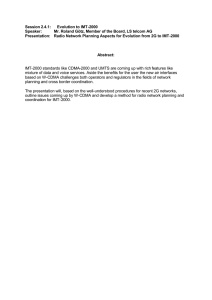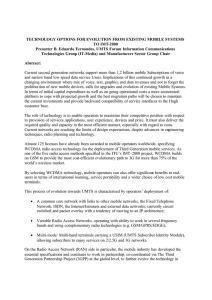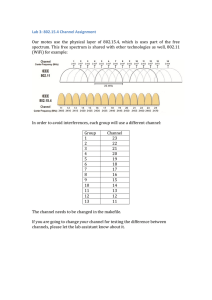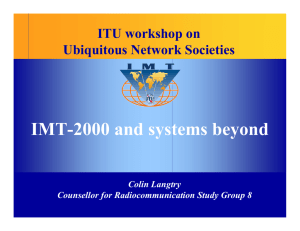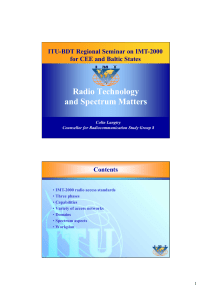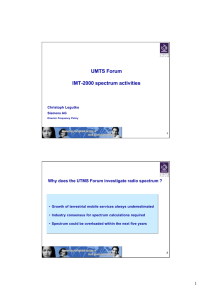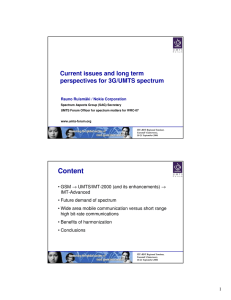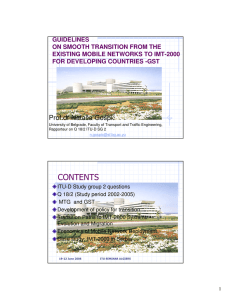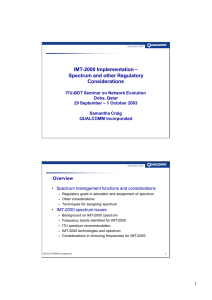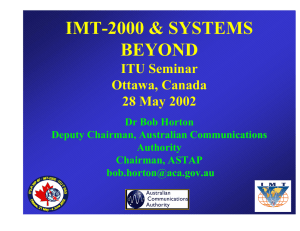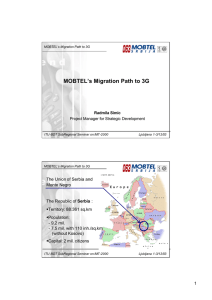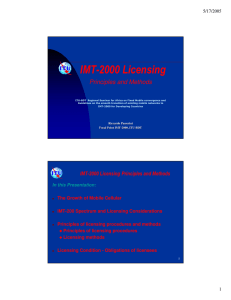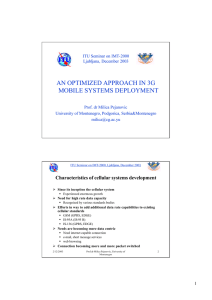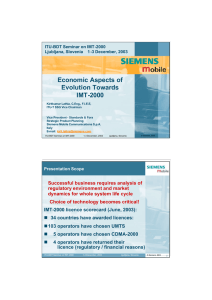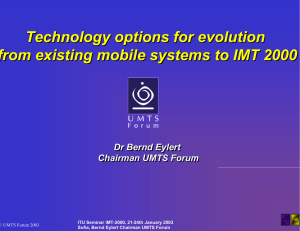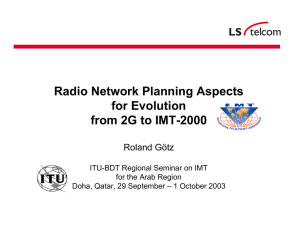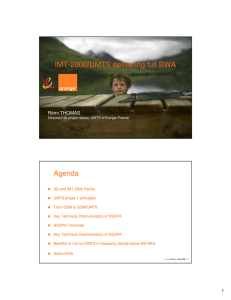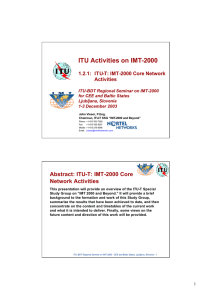Abstract “Spectrum Issues for IMT-2000” Wassim CHOURBAJI (Orange)
advertisement
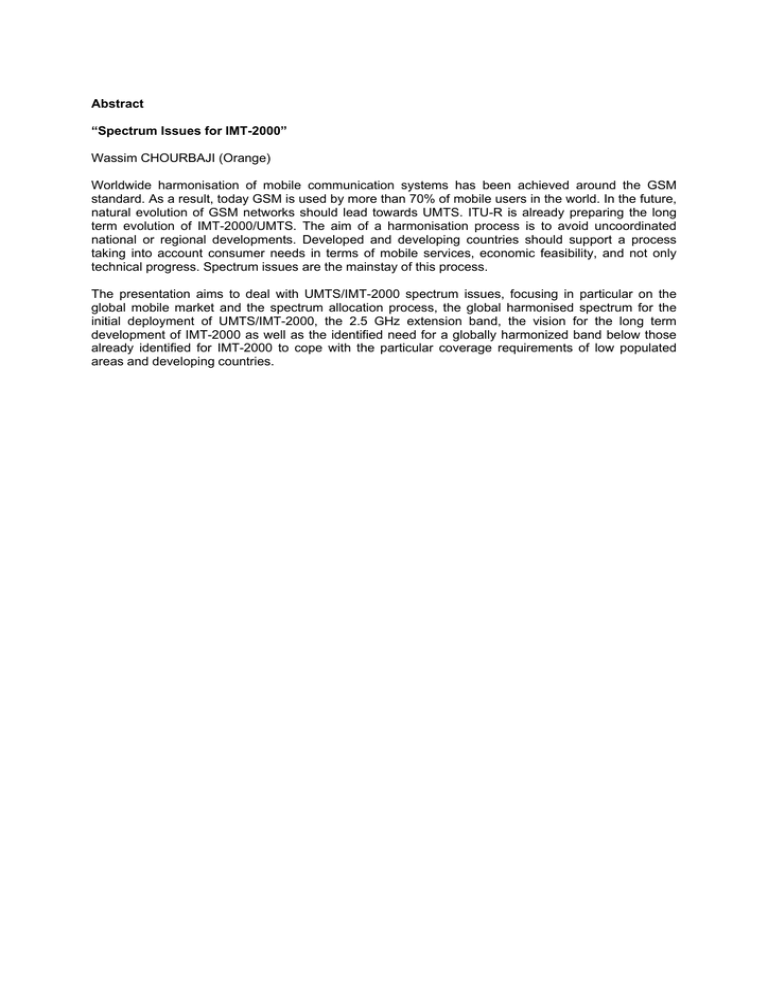
Abstract “Spectrum Issues for IMT-2000” Wassim CHOURBAJI (Orange) Worldwide harmonisation of mobile communication systems has been achieved around the GSM standard. As a result, today GSM is used by more than 70% of mobile users in the world. In the future, natural evolution of GSM networks should lead towards UMTS. ITU-R is already preparing the long term evolution of IMT-2000/UMTS. The aim of a harmonisation process is to avoid uncoordinated national or regional developments. Developed and developing countries should support a process taking into account consumer needs in terms of mobile services, economic feasibility, and not only technical progress. Spectrum issues are the mainstay of this process. The presentation aims to deal with UMTS/IMT-2000 spectrum issues, focusing in particular on the global mobile market and the spectrum allocation process, the global harmonised spectrum for the initial deployment of UMTS/IMT-2000, the 2.5 GHz extension band, the vision for the long term development of IMT-2000 as well as the identified need for a globally harmonized band below those already identified for IMT-2000 to cope with the particular coverage requirements of low populated areas and developing countries.
